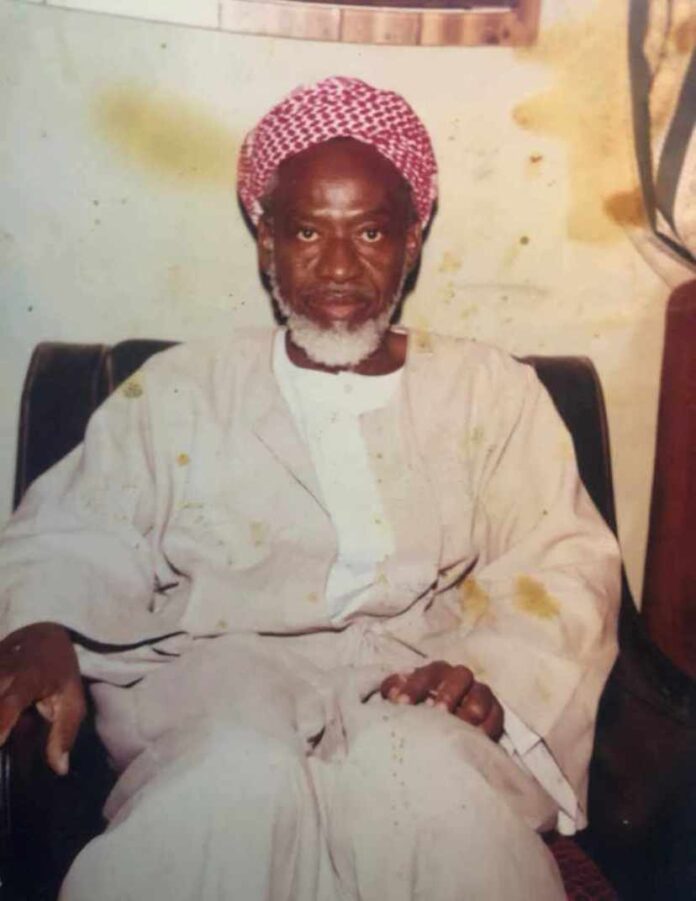On the 11th of September, 1992, Nigeria lost one of its most revered Islamic scholars and religious figures, Sheikh Abubakar Gumi. Today, 32 years after his passing, the legacy of this spiritual leader still resonates across the country and beyond. Gumi, known for his profound knowledge, commitment to Islamic education, and efforts to promote understanding and unity among Muslims, remains a towering figure in Nigerian religious history.
Born in 1924 in Gummi, Zamfara State, Sheikh Gumi grew up with a passion for Islamic studies, and his early education was deeply rooted in both traditional and modern Islamic learning. After studying at several Quranic schools, he attended the prestigious School of Arabic Studies in Kano, which sharpened his knowledge of Islamic jurisprudence and theology. His academic excellence caught the attention of many, and he soon became an influential voice in the Islamic community.
Gumi’s career took a significant turn when he was appointed as the first Grand Khadi (Chief Judge) of the Northern Region’s Sharia Court of Appeal in 1962. This role not only gave him an important platform to influence religious discourse but also cemented his authority on matters of Sharia law and Islamic governance in the region. As Grand Khadi, Sheikh Gumi was a staunch advocate for a balanced approach to religious practice, promoting the idea that Islamic principles should be adapted to modern realities while staying true to the core teachings of the Quran and Hadith.
His tenure as Grand Khadi also saw him playing an advisory role in political matters, engaging with leaders at both regional and national levels. Sheikh Gumi’s influence extended beyond the courtroom and pulpit as he sought to guide the Muslim community on matters of governance, social justice, and morality. He was an outspoken critic of extremism and was known for his calls for unity among Muslims, often emphasizing the need to avoid divisive practices that could fracture the Muslim ummah (community).
However, Sheikh Gumi’s legacy was not without controversy. He was an ardent critic of traditional Sufi practices, particularly those associated with the Qadiriyya and Tijaniyya orders, which were widespread in northern Nigeria. Gumi believed that some of these practices deviated from orthodox Islam, and his views led to tensions between him and the Sufi leaders in the region. Despite these disagreements, Gumi’s influence continued to grow, and his reformist ideas gained traction among many Muslims, particularly those who subscribed to the Salafi interpretation of Islam.
Beyond his work as a scholar and judge, Sheikh Abubakar Gumi was a prolific writer and educator. His radio programs and writings on Islamic teachings became widely popular, and he played a pivotal role in spreading Islamic knowledge throughout northern Nigeria. He was also instrumental in the establishment of the Jama’atu Nasril Islam (JNI), an organization dedicated to promoting Islam and fostering unity among Muslims.
Sheikh Gumi’s passing on the 11th of September, 1992, marked the end of an era. He left behind a rich legacy of scholarship, religious reform, and community leadership that continues to inspire Islamic scholars and laypeople alike. His contributions to Islamic jurisprudence, education, and social discourse have left an indelible mark on Nigeria’s religious landscape.
As we commemorate the 32nd anniversary of Sheikh Abubakar Gumi’s death, his teachings and vision for a united Muslim community remain relevant. His life and work serve as a reminder of the power of knowledge, faith, and leadership in shaping the moral and spiritual direction of a society. Even in death, Sheikh Gumi’s influence endures, ensuring that his legacy will continue to guide generations to come.
Abcnews
ainuwa303@gmail.com




